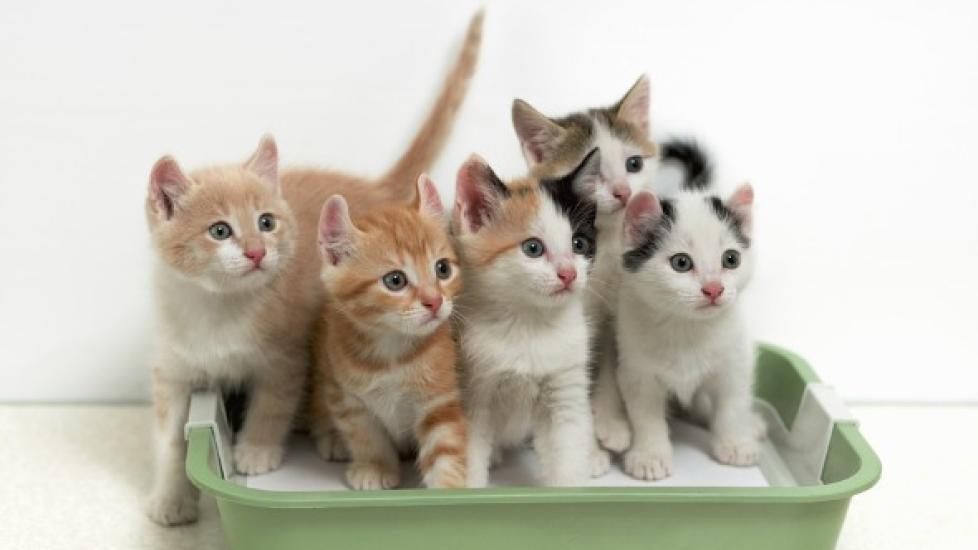Why Multiple Cats Need Multiple Litter Boxes
Purrfect and Tigress have adapted to sharing things and people in their multi-cat household. They both stand at their food bowl and take turns dipping their faces in; they assume opposite sides when drinking from their water bowl; they play “keep away” when they want the same toy; and they recognized early on that their owners have two hands for petting both of them at the same time. With all this accommodation, why can’t they also share the same litter box? The reasons cover a wide range, from their origins in the wild, the hierarchy they have established among themselves, and their individual personalities and characteristics, to how they express their feelings and maintain their territory.
Give 'Em Some Space
Cats, unlike dogs, are not pack animals. Even if they are siblings from the same litter, there will be times when each kitty wants her own space. And when they are doing something as private as elimination, sharing the same litter box can be stressful for some cats. Ideally, a multi-cat household should have the same number of litter boxes as the number of cats, plus one extra box; in other words, for two cats, there should be three litter boxes.
Places, Everyone
Cats that are territorial tend to carve out their path of travel throughout the house and, if the alpha cat is aggressive toward the beta cat, the bully can block the litter box entry. Denied access can lead to elimination elsewhere — like your favorite couch. But if two of the litter boxes are placed at opposite ends of the house, stalking is cut off at the pass. It’s impossible for Tigress, for example, to guard both boxes at the same time. The third box, meanwhile, can be placed somewhere between the opposite two, or on the second level of a two-story house.
Keeping It Clean
The golden rule of litter boxes is to keep them clean but, unless you are in the vicinity every single time one of your cats goes potty, it’s impossible to remove waste as soon as it’s deposited. Since cats tend to be territorial, most often each cat will claim her preferred litter box and other cats will seldom use it. Having multiple boxes prevents overcrowding into one, where your cat has to step on others’ waste and may feel like there’s not a spot clean enough to “go.” Not finding what she needs in her litter box, she’ll choose another spot where no stepping over waste is required.
Providing multiple litter boxes for multiple cats can also save your furniture and carpet, ensure your kitties are happy and feel safe, and avoid needless confrontation over not having enough facilities. The bonus is the encouragement of good behavior and avoiding inappropriate adaptations to accommodate their basic needs. That is their owner’s job.
